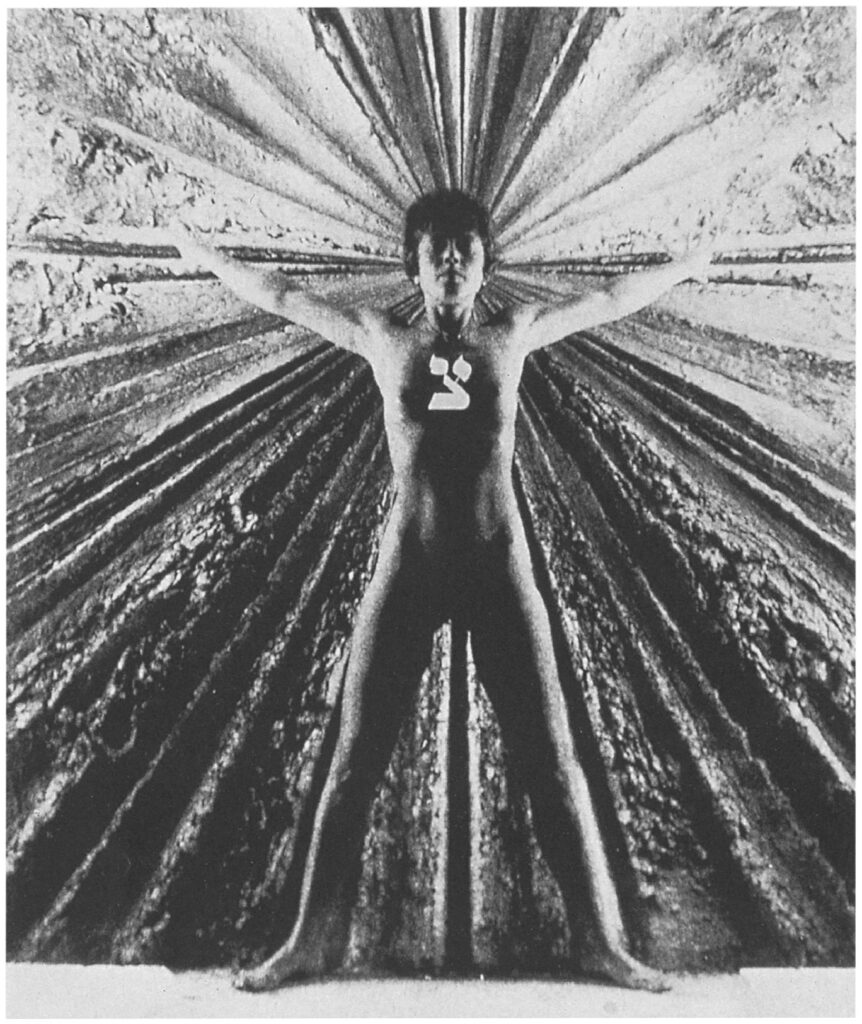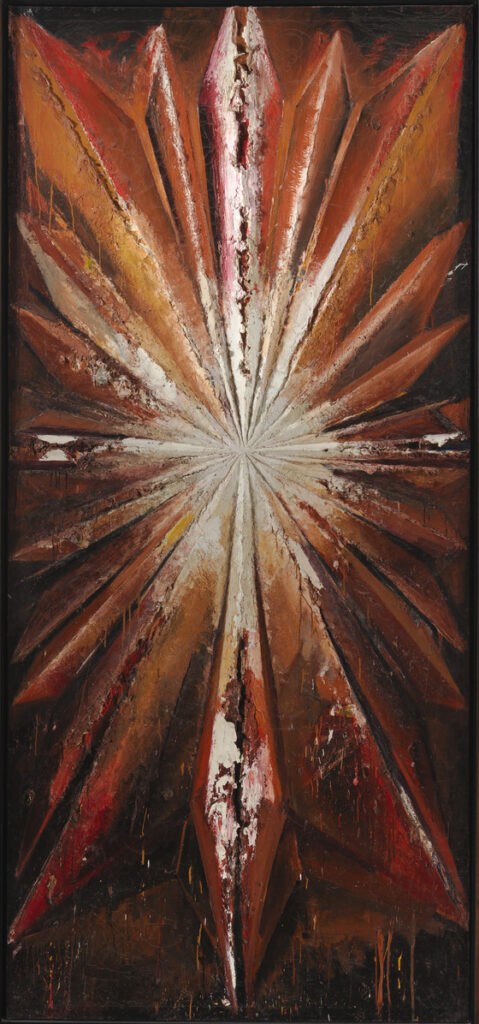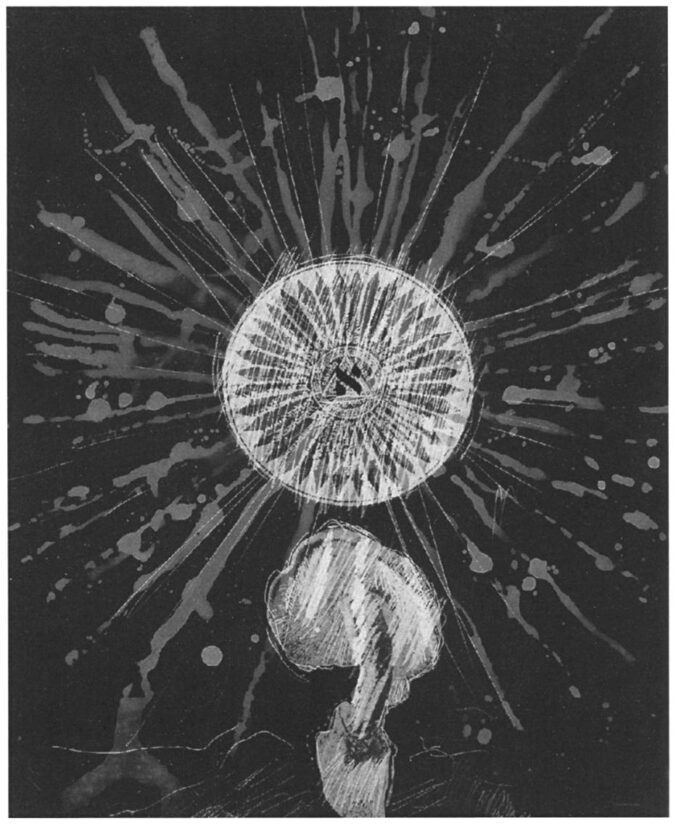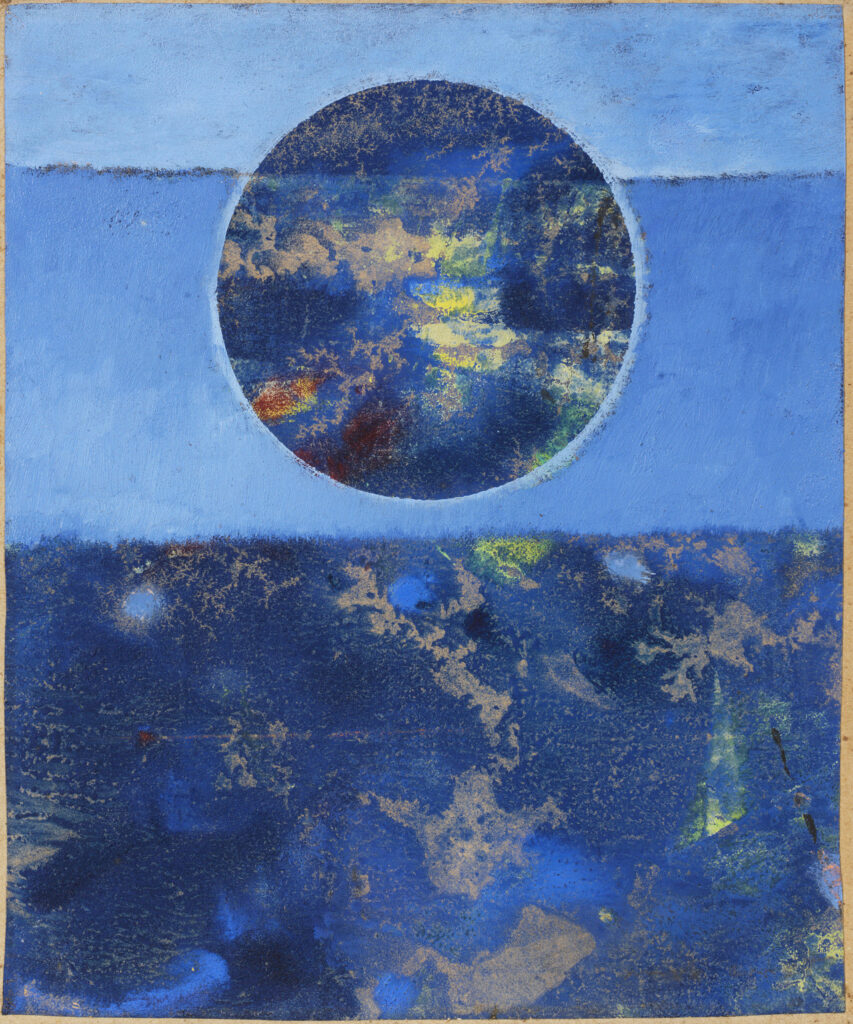This little essay is prompted by a discussion with a friend about the seriousness of magical oaths and obligations, the duties they entail, and when – if ever – it’s permissible to break them. This is a funny area. It’s the sort of thing practitioners occasionally speak about with each other but which less often makes it into the books, unless to burnish one’s own credentials by insisting everyone else is a terrible, illegitimate oathbreaker. I think it worth writing a little about, though, because a number of interesting questions – about magic, about spiritual change – come into focus through it. I will return to the ‘steps of the foundation’ series very soon.
Some context and definitions: said friend and I both have wide and varied experience in traditions that teach practical magic, but which also teach the use of magical techniques for spiritual development, and put candidates through initiation ceremonies which (when worked correctly) induce new states of consciousness and help accelerate that change. These span ecstatic witchcraft and formal – if at times no less ecstatic – ceremonial. Beyond my consideration are the oaths and pacts individual magicians might make with spirits, but some parallels will be obvious. When I talk about the ‘magical community’, I mean everyone engaged in magical practice who is also connected in some way – however slight – to others doing the same. (This includes, for instance, just reading their output, or lurking on an email list, as well as participation in covens, groups, or orders.)
Silence and Secrecy
Magicians are terrible at keeping secrets. Which is to say several things: first, that the ‘magical community’, which has no central authority, functions by exchange of gossip and stories, and like any other human community prurience and strategic misrepresentation are rife. Second, there are rewards – sometimes monetary but more often prestige and social power – for seeming in the know. Third, magicians are nosy: we’re typically curious about how other people do things, some of us because we get off on telling people they’re wrong, others because we like stealing things that work. Fourth, magicians are inveterate teachers: we like passing things on, and we like keeping things alive. Combine all these and you get a community which values secrecy rhetorically but delights in its breach.
Motives are mixed, as separating them out thus shows us. The historical study of magical traditions and the great wave of publication of occult material in the 20th century brought many benefits, not least of which it is much harder to trade on ancient and secret lineages to profit from or abuse a sincere but naive seeker. But the power of silence is still taught as one of the cardinal virtues of magical practice. (In one tradition of ceremonial magic, the candidate is supposed to meditate daily on the four powers of the magician – to know, to dare, to will, to keep silence – in turn for the four weeks prior to their first initiation. It is no accident that silence is the theme of the week preceding the ceremony itself.) Why do we still value silence and secrecy?
- Social prudence: even if you are able to be open about your practice, others that you meet in magical groups will not be. Although some parts of Europe and America pay lipservice to a distinction between personal belief and public or professional life, in reality there are unpleasant consequences for an interest in the occult. In Britain, the tabloid press remains hungry for stories which expose witches and magicians, as happened sporadically to members of Gardnerian and Alexandrian covens in the postwar decades. Such exposés are frequently devastating for people at their centre. I also expect the social penalty for interest in the unorthodox to increase as this century unspools.
- Psychological commitment: a commitment to remain silent about magical work frees the magician in two ways: freedom from the interest of others and thus the human need to impress, and freedom to be honest about and absorbed in the work itself. This is especially important in the early days of building magical discipline, and unlearning the common compulsion to show off or brag.
- Magical efficacy. This can also be split into two branches. It is generally helpful to remain silent about practical magical workings (at least) until they have achieved their ends, partly because the knowledge someone is working magic to a particular goal might trigger unwanted complications. But theurgic magic directed towards personal transformation, vision, or ecstasy also benefits from silence: an urge to communicate these experiences too quickly can cause us to too readily ‘fix’ them, rather than allowing them to properly transform us and unfold their deeper implications. (The consequences of these experiences – ‘initiatory’ in the fullest sense, but only sometimes taking place in rituals of initiation – can take years to fully unfold.)
The association of secrecy with magic and the mysteries is ancient and venerable. In one of the surviving fragments of On Philosophy from Oracles, Porphyry warns against too easily publishing mystical secrets, and specifically pays attention to the motives for doing so: “do not […] cast them before the profane for the sake of your reputation [δόξες] or for the sake of gain [κέρδους] or for the sake of any other unholy flattery [κολακείας].” (in Euseb. PE IV.8) So specific a list of motives has the odour of experience in it. It is usually argued that the ancient Mediterranean observed the taboo on disclosing the mysteries very closely, given how little evidence survives of their content: perhaps here we see a record of a more complex story. These three motives remain useful goads to self-examination – and to bear in mind when reading other authors.
It’s well known that the ancient world made a distinction between two different kinds of occult secrecy: aporrheton, a communicable secret which it is forbidden to communicate, and arrheton, a secret of the mysteries which can only be experienced rather than directly communicated in language. Porphyry, in fact, uses the latter term immediately after the passage I quoted. This distinction persists: you can sometimes hear occultists claim the only real secrets are the latter kind, or even that these are the only secrets they are obligated to keep. (An easy job, if they’re not linguistically communicable.) But aporrheta can include a vast amount of information – the identity of participants, ritual content, magical records, methods and techniques, recipes – and this is what is usually guarded by oaths of secrecy. One of the word’s other applications in antiquity provides a suggestive metaphor: it sometimes referred to commodities forbidden from export, essential to the functioning of the city. The circle of trust formed by magical secrecy is as important as a city’s supply of grain.
The Obligation: Why do we swear oaths?
Although it has some arguable ancient analogues, and writers on witchcraft in particular claimed that witches swore dire oaths to conceal their Satanic gatherings, the modern magical oath ultimately springs from Freemasonry. Typically it contains a commitment to keep secret all the secrets of the group, a commitment to magical work (often replacing the social commitments of the Masonic oath), and a section committing oneself to various grand guignol punishments should that oath be broken. In consonance with its Masonic origins, it is also sometimes called ‘the obligation’, and this is a useful way to think about it: it is a series of commitments made, with utmost seriousness, to one’s own spiritual development, and to the people in the group and tradition in which one works – including the chain of dead magicians who preceded you. ‘Obligation’ shares with ‘religion’ a root meaning ‘to bind’, and to take a magical oath is to voluntarily bind yourself to something greater than yourself. It ought to represent a serious commitment of time and energy. It is not a light matter, though oaths are sometimes made lightly. There are many wise folk tales which should warn us about lightly-made oaths.
(In many traditions, the seriousness and scope of the oath changes by degree, as the candidate is woven deeper into the mystery and takes on more responsibility for it. It is also useful to stress the obligations ought to be two-way: if a candidate takes on duties, he or she is also entitled, for instance, to clear instruction, attention to his or her development, and good and thoughtful supervision. None of this need be arduous, but this is one reason some traditions are cautious about hurrying people towards initiation.)
The magical component of the oath is also worth mentioning very briefly. Oaths of magical commitment are often made by solitary practitioners, classically as part of the pursuit of the Holy Guardian Angel. (Some traditions, including some branches of the A∴A∴, associate an oath to complete a particular magical work with each grade.) When these are included in initiatory oaths, they can be thought of as swinging the group’s egregore behind that work, but also as demonstrating that the group’s rituals, rules, workings – much of its aporrheta, that is – exists ultimately to further that goal.
There is also a much more down-to-earth reason for combining magical and initiatory oaths. Oaths are not especially important in periods where everything works, for the initial burst of enthusiasm, where one can’t wait to get in the circle. They matter in the dry and dark periods because they are commitments to other human beings as much as commitments to spiritual development – and it is those commitments which can bring us through the fallow. Often periods of magical difficulty can be akin to feeling overwhelmed with responsibility, of truly being responsible for one’s own life with everything that entails: one of the functions of the oath is to establish a bedrock for those periods, one decision which you have already taken out of your own hands.

Of Oathbreaking
The development of magic in the 20th century owes a great deal to oathbreakers. The shape of western magic was changed profoundly by Aleister Crowley and – far more so – Israel Regardie’s disclosure of the materials of the Golden Dawn. (Many others have disclosed previously private material with varying degrees of legitimacy, but those two stand apart simply for the breadth of their influence.) Regardie is the more interesting case than Crowley, whose disclosure owed as much to his titanic narcissism as it did a serious esteem for the GD corpus. Regardie narrated his experience of the order, and his rationale for breaking his oath of secrecy in What You Should Know About the Golden Dawn. The book is still worth reading as an account of a moribund magical order, and for the obvious admiration Regardie had for a magical system ill-stewarded by the ‘inepti’.
Regardie took his oaths seriously, but believed he was in an emergency. Faced with a choice between allowing the system to die out and publishing its papers to allow it to be reborn, he broke his oath for a higher end. The many groups and individuals who drew from that treasure house – some tacitly, some openly – testify that his judgement was correct. (I am aware of one British Golden Dawn group which disparaged Regardie as an oathbreaker but used his books extensively. They will not be alone in that.) More than simply making material available, Regardie’s other work significantly changed how it was received: it encouraged people to pick it up and work it, with the result that almost every candidate seeking initiation in a magical group today will have had far more magical experience that their Victorian equivalents. Arguably it is this experimental attitude which led many of his readers to generate new approaches to ritual magic, like shedding its masonic accoutrements or the generation of entirely new systems. (The approach of the OSOGD, now sadly closed, is also worth highlighting.)
Regardie is an interesting case of more fundamental obligations prevailing over oaths, and he was clear about his motives. Even administered half-heartedly, the vows Regardie would have made in his Adept initiation – while strapped to the cross of obligation – could not fail to strike him as serious. It’s clear he took the ethical problem seriously. It is all the more striking, then, that he took the decision to publish the GD papers fully, rather than circulate them in private. There’s much to reflect on in this decision: publishing opened the material out to many more interested parties than could ever be part of private networks, allowing greater experimentation, and guaranteed preservation of the material – allowing it to be rediscovered. It also perhaps reflects how few – even among interested parties – are interested in really pursuing the work. Appearing to break his oaths, Regardie instead sparked a magical renaissance.
Obligations to others
What about our other obligations? In Regardie’s case, obligation to the tradition itself prevailed over the formal vow. There are, conceivably, situations where somebody’s partial disclosure and profit from secret materials (or careless publication of techniques without safeguard or context) might prompt others to publish. There are also, sadly, situations where abuse inside a tradition may confront us with the need to disclose not only material but identities. Both cases can be understood as acts of greater fidelity to the tradition itself.
The other major obligation many feel is historical. This includes professional historians who are also initiates, but also initiates who feel compelled to work with interested historians. Reasons for such collaboration are manifold, but include: desire that magic should take its proper place in western culture, revisionism of inaccurate history, a hope that truthful magical history might help us to avoid some of the mistakes our predecessors made, a kind of ethical obligation to history itself. It’s a commendable desire to want to know more about where we come from, and to insist on those answers being true. In general, proper historical attention to magic is a boon: it’s dispelled harmful myths, mostly rid us of the worst excesses of lineage-mongering, and gone some way to demonstrate the breadth and persistence of magic in western culture. Much of this has been accomplished by careful textual and archival work, but has also relied – especially in the history of witchcraft – on disclosure by initiates, particularly of the names and identities of dead (and, less often, still-living) practitioners.
For many, those disclosures have become very easy to make, even to the point that I’ve met initiates who very freely disclose who’s involved in what, even in fairly public settings. (The borders between knowledge, gossip and rumour are not well-policed here, either.) Public magicians, or those who are generally open about their practice, sometimes fail to remember their ethical obligations to others who do not have that luxury. This touches directly on the third component of magical oaths: not about personal practice, not about secret material, but about personal identity. Even in close-knit magical groups it is hard to gauge what consequences someone might suffer as a result of their practice being made public – familial, social or professional. This goes doubly so for people to whom we are less intimately connected. People are rarely killed for an interest in magic, at least in Europe and North America, but lives are still blighted, careers ruined and families torn up for it – more so than might widely be known.
There’s no point in pretending the ethical issues here aren’t real, or are easily solved. Like many others, I am eager for better-sourced, clearer histories, especially of postwar British occultism. But in deciding if, and what, to disclose, perhaps we ought to return to our oaths rather than simply shrug them off. Nothing in any magical oath says it is purely context-dependent, something that somehow doesn’t apply simply because you’ve decided to write a book. Our obligations to others do not disappear simply because we have decided they are now too cumbersome. The point of any oath is that when we feel it chafe, we are reminded of the commitments and high intentions we made when we took it. To shrug it off isn’t a neutral act, especially when undertaken without consultation with others – what does it suggest you think about the people and powers with whom you stood when you took that oath? About how reliable your word is? Group magical work also depends on trust: to damage it needlessly is an act of spiritual vandalism.
But there are times when disclosure of the identities of past initiates is either unavoidable or even desirable. Some useful questions to ask in that situation include: is this my secret to give away? What do my oaths say? What good comes of disclosing this identity? What harms? What did this person want while they were alive – and do they have any surviving magical colleagues I can talk with about it? What about their surviving family? Do they know – and would it harm them for it to come out? Can we use pseudonyms and achieve the same end? What do others think? It is no accident that these are all ethical questions, which should focus us on our obligations, remind us of our involvement in a community, and involve us in thinking about others’ comfort as well as our own. Incorporation into the historical record is not the sole good, impossible to gainsay.

Magical ethics and spiritual athletics
This is one area where magical practice brushes up against worldly concerns, and prompts ethical problems. It’s far from the only one. It’s a different category of ethical problem to, for instance, whether it is a good idea to work magic for someone without their knowledge, or the justifiability of curses. It’s far closer to questions like how one handles an initiate who has recently taken an initiation and then decides it is time to quit everything, leave their partner, sell their possessions and live in a cave – or how one recognises such crises in oneself. These are questions experienced magicians ought to talk about among themselves more often than we do. It is my contention that the western esoteric tradition – patchwork, rickety and ill-transmitted though it can be – contains many resources for answering these questions within it.
One reason these are overlooked is because oaths are sometimes made in the heat of the moment, during an initiation, with very little preparation of the candidate. Of course, this is sometimes just initiators passing on what was done to them: one of my very first initiations was done this way. But it would be helpful in building a firm foundation if initiators encouraged their candidates to think about commitments, oaths, obligations – even if in general terms – before the ceremony itself.
My above emphasis on magical oaths – and the four powers of the magician – means to stress the resources the tradition offers us. Meditation and reflection on them will reveal great and unexpected depth. Western magical traditions sometimes portray the practitioner as a kind of spiritual athlete, honing common capacities to unusual levels. There is, of course, a lot to that: magic arrives through unusual means, entails strange practices, and transforms the practitioner in unexpected ways. This can at times be daunting or seem isolating. The oath – the ligatio, and the obligation it entails – reminds us that we do not do it alone. It reminds us that in our quest to be more deeply and more fully human, we do not cease being human in every other respect, in need of others and needed in our turn. Our discipline is not always easily attained. To make time on the anniversary of an initiation to reread one’s oaths is an askêsis, not in the sense of mortification or self-denial, but of personal discipline and self-fashioning. Given those oaths often contain some of the very highest aspirations of western esoteric tradition, perhaps we could do with reminding of them more often.

